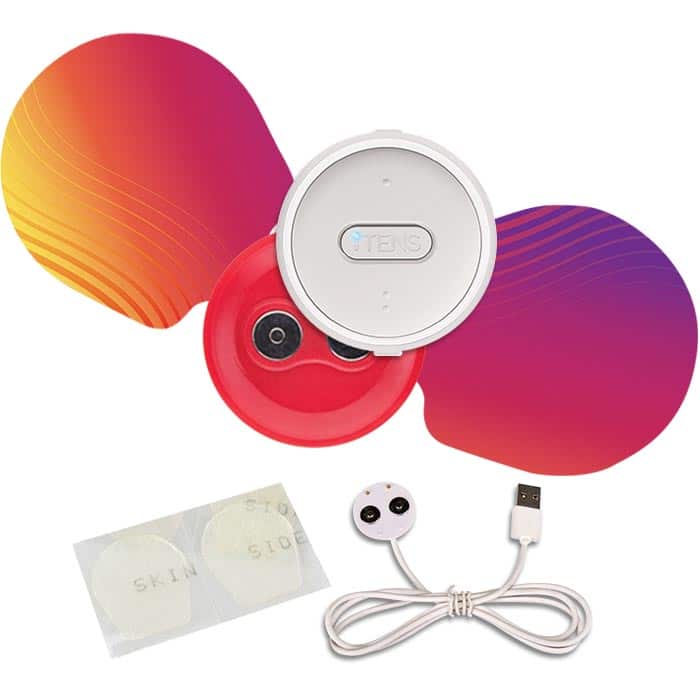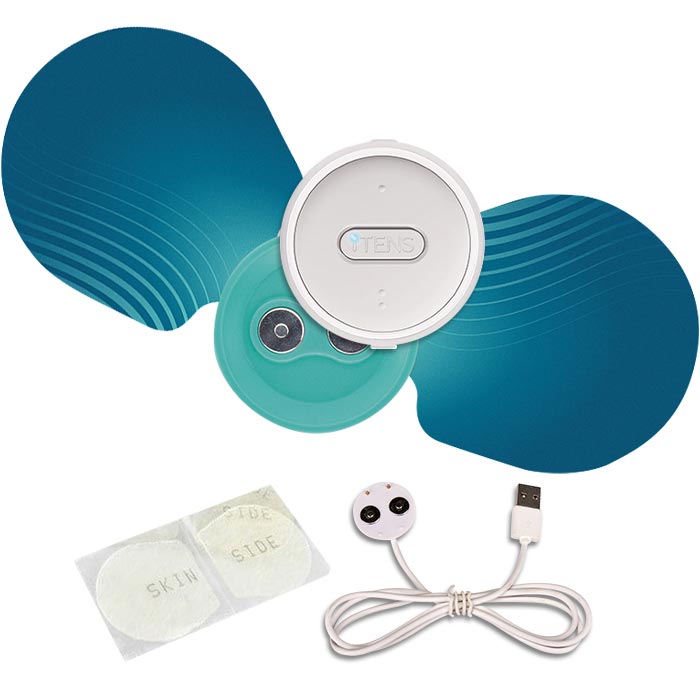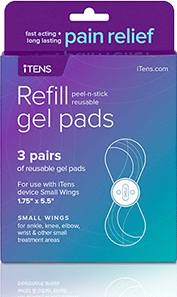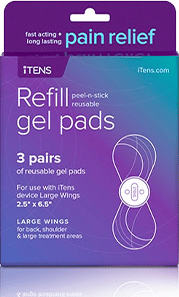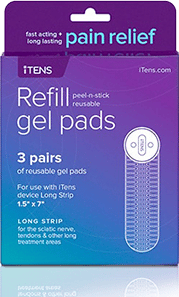
Painful periods affects millions of women monthly. Fortunately, there is a Transcutaneous Electrical Nerve Stimulation or TENS for period cramps. It utilises a device to send electrical pulses to the body as a method of pain relief. Accordingly, TENS pulse therapy works through various mechanisms. Foremost, it blocks the transmission of pain signals to the brain. Also, the electrical currents can prompt the production of endorphins. Additionally, TENS treatment can promote increased blood flow.
Menstrual cramps, also known as dysmenorrhea, affect a large percentage of menstruating individuals. This can significantly impact daily activities and the overall quality of life. Traditional period pain relief may involve hot water bottles, heating pads, gentle exercises, and over-the-counter medications. However, they may not always be effective. Nevertheless, TENS emerge as an effective relief from period cramps. This article will present TENS for period pain discomfort, how it provides relief, and how to conduct it.
What is TENS for Period Cramps?
Menstrual cramps (dysmenorrhea) are a common gynecological condition that affects people with menstrual periods. These cramps occur as the uterus contracts to shed its lining during menstruation. Subsequently, the discomfort can range from mild cramps to severe pain. Symptoms, such as nausea, fatigue and lower backache, usually accompany it. Fortunately, TENS therapy is an effective solution.
TENS for period cramps is a treatment that uses a portable, battery-operated device. This unit delivers low-voltage electrical currents to the body via electrodes placed on the skin. Furthermore, it is commonly used by health professionals, pain specialists, and physical therapists. They use it to provide relief from period pain. Also, individuals may utilise TENS at home as part of their self-care routine.
The TENS devices come in both wired and wireless forms. Wired TENS units require the need for lead cables to connect the electrodes to the central machine. This is often used in clinical settings. Meanwhile, wireless TENS units eliminate the need for physical wires. Thus, it offers the convenience of mobility and can be discreetly worn during daily activities.
Causes of Menstrual Cramps
- Production of prostaglandins: This can trigger uterine muscle contractions that cause cramping.
- Uterine contractions: The uterus contracts to expel its lining during menstruation. This can lead to cramping.
- Hormonal imbalance: Fluctuations in hormone levels can lead to heightened sensitivity to pain and increased uterine contractions.
- Endometriosis pain: It occurs when the tissue lining of the uterus grows outside the uterus. It causes severe cramping and chronic pelvic pain.
- Fibroids: Non-cancerous growth in the uterus can cause menstrual cramping due to their impact on the uterine muscles.
- Cervical stenosis: Constriction of the cervix can lead to increased pressure and more intense menstrual cramps.
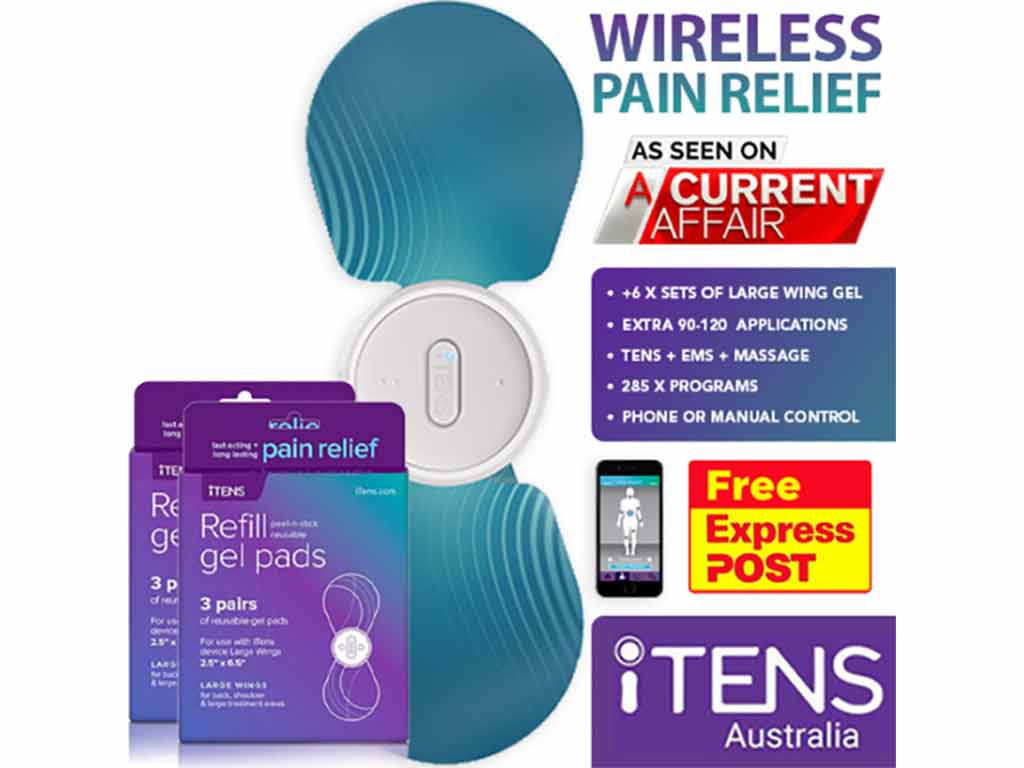
How TENS for Period Cramps Provide Relief
TENS for period cramps provides relief through several physiological mechanisms. Foremost, TENS works on the principle of the Pain Gate Theory. This involves stimulating the sensory nerves to close the “pain gate” in the spinal cord. The electrical signals from TENS can activate the sensory nerves, which can compete with the pain signals. This effectively closes the “gate”, reducing the perception of discomfort.
The electrical impulses from TENS can also trigger the release of endorphins. These are the natural pain-relieving chemicals of the body. Endorphins acts as a neurotransmitter and binds to opioid receptors. By promoting the release of endorphins, TENS therapy can lead to a decrease in the intensity of menstrual cramps. Additionally, it can provide a sense of overall well-being.
Furthermore, TENS treatment has the potential to enhance blood circulation in the treatment area. The electric currents from TENS can stimulate the nerve fibres and muscles, leading to vasodilation. This widens the blood vessel, resulting in increased blood flow. As a result, it may help reduce tissue ischemia (lack of blood flow) and promote the delivery of oxygen and nutrients.
Benefits of TENS Treatment
Firstly, TENS treatment is non-invasive. It does not need incisions, injections, or surgical procedures. Secondly, TENS is drug-free. This makes it suitable for people who prefer to avoid over-the-counter medicines. Thirdly, TENS provides targeted relief. The electrode pads can be precisely positioned in the body to target specific areas affected by menstrual cramps.
Fourthly, TENS devices offer adjustable settings. People can customise the pulse width, pulse amplitude, and pulse duration. Moreover, TENS provides immediate pain relief. The electrical pulses start working upon the activation of the device. Additionally, TENS therapy has minimal potential side effects.
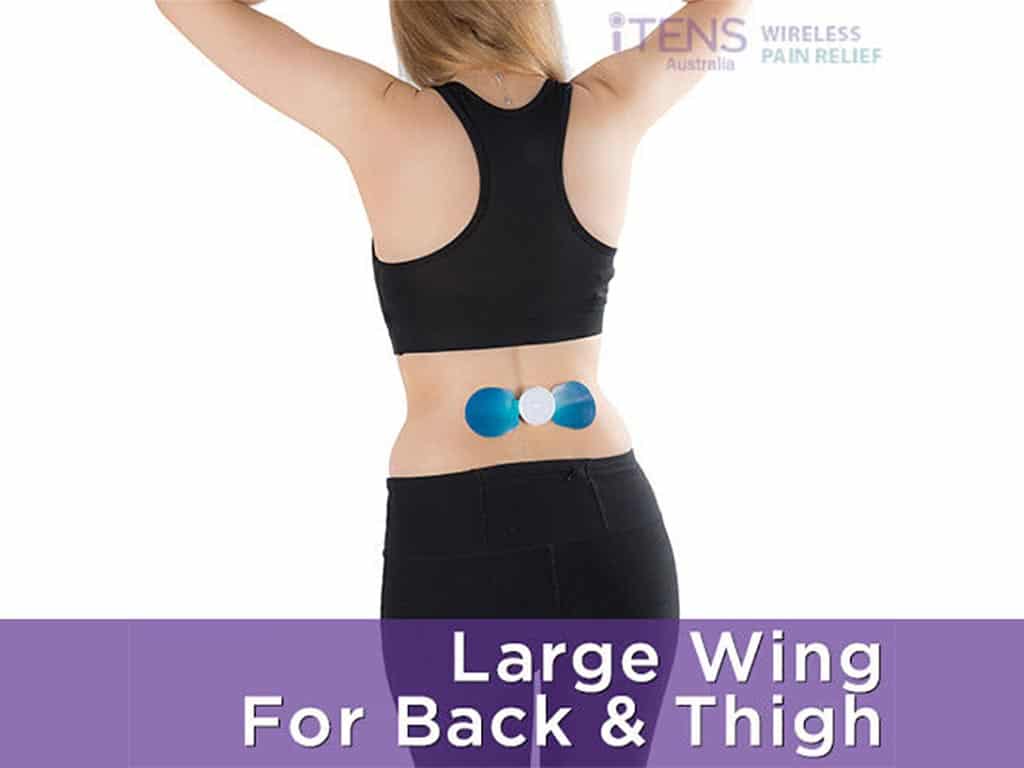
How to Conduct TENS for Period Cramps
Conducting TENS for period cramps is a straightforward process. Begin by ensuring that the device is fully charged or has fresh batteries. Next, identify the treatment area and prepare the skin over it. Then, carefully position the electrodes in the skin. Adhering to the proper pad placement is crucial in this step. Follow the user manual or the recommendations of healthcare professionals.
Once the electrodes are in place, turn on the TENS device. This may prompt users to adjust the settings (frequency, intensity, and duration). Additionally, some TENS units may have pre-set programs. Hence, select or choose the one for period pain. Nevertheless, start with the lowest setting and gradually increase it to a comfortable level. Once the parameters are set, initiate the electrical stimulation.
During the therapy, individuals should monitor their comfort level and the effects of the treatment. If any discomfort occurs, adjust the settings or seek medical help if necessary. A typical TENS treatment duration may last between 15 to 30 minutes. After completing the therapy session, turn off the device and remove the electrodes. Clean the skin and store the device properly for future use.
Proper Pad Placement
Before placing the electrode pads, ensure that the skin in the treatment area is clean and dry. Then, carefully position the electrodes. For menstrual cramps, it is usually placed on the lower abdomen or the lower back. The pads should be positioned symmetrically on both sides. Accordingly, maintain an appropriate distance between the electrodes to achieve optimal coverage.
Additionally, avoid positioning the pads over bony areas or areas with reduced muscle and tissue coverage. Also, do not place the electrodes on open wounds or broken skin. Furthermore, gently press the electrodes to the skin to ensure secure adhesion and proper contact with the skin surface.
Conclusion
In summary, prostaglandins, uterine contractions, endometriosis, and cervical stenosis are the common causes of menstrual cramps. Fortunately, there is TENS for period cramps as an effective relief. It utilises a wired or wireless device that delivers electrical currents to the body. Accordingly, this electrical stimulation provides relief through various mechanisms. It blocks the transmission of pain signals to the brain, triggers the production and release of endorphins, and enhances blood flow.
Furthermore, TENS therapy presents numerous benefits. It is non-invasive, drug-free, customisable, provides immediate and targeted relief, and has minimal side effects. Moreover, conducting TENS treatment involves several simple steps. Begin by preparing the device. Then, locate the treatment area and clean the skin. Next, position the electrode pads. This can be in the lower abdomen or lower back. Finally, turn on the device, adjust the settings or choose a pre-set program, and initiate the therapy.








